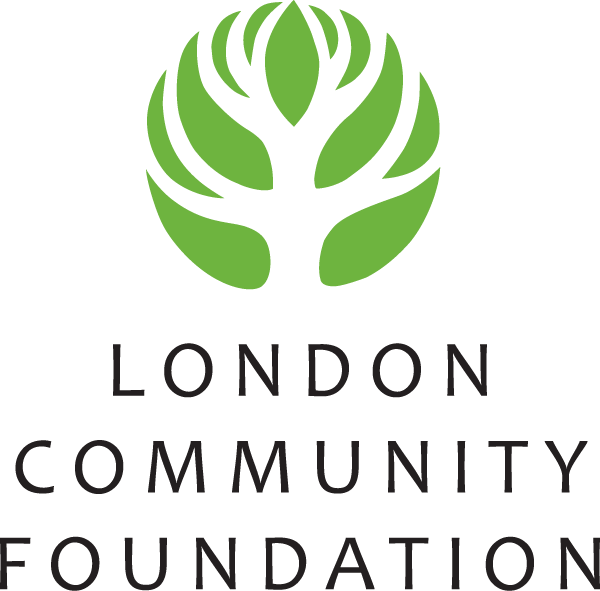Health and Homelessness Fund Public Engagement Dates
Health and Homelessness Fund Public Engagement Dates
2,000. That is the average number of people who will be homeless tonight and on most nights in London.
Across the country, numbers of homeless varies from city to city, town to town, but there are few parts of Canada that have been concerned about the increasing number of homeless people on their streets.
What sets London apart is our “whole” community response, and that we also have a family who cares enough to put millions of dollars into helping people get off the street and into safe housing.
Rather than making it the responsibility of individual organizations, already stretched to the breaking point, to “fix the problem”, our made-in-London approach is to tackle homelessness through a unique community collaboration.
Just over three months ago London City Council unanimously backed a new homelessness plan known as the Whole of Community System Response. Since then, walk almost anywhere in London’s downtown and it appears that nothing has improved in terms of homelessness.
London’s homelessness plan, however, is big and it’s complex. Quietly, behind the scenes, a lot of progress is being made.
As background, the plan began taking shape almost a year earlier when more than 200 people, representing 70 local organizations, including experts from social services, health care, addiction services, education, indigenous community, business and funders, housing, and religious organizations, came together to tackle the issue. The challenge was to reimagine how we could get people off the streets and into safe places, helping them get stabilized with supportive housing and wrap around supports. The City’s leadership in encouraging so many parties at the table for this first-ever cross-sectoral collaboration on homelessness is remarkable.
Homelessness results from individuals experiencing deep poverty, no longer being able to cope with the toll caused by illegal drugs that are increasingly more potent and dangerous; a lack of mental health supports; violence, racism, and isolation. London’s Whole of Community System Response is a unique plan where housing is part a system of care that recognizes that most people cannot begin to face their problems until they have a safe place to live.
As you can imagine this work can be very complex. London’s response has three pillars working in tandem: the establishment of the first of five hubs; providing around-the-clock supportive housing and encampments.
Some homeless people can’t access regular shelters because they have a grocery cart jammed full of all they own or collected. The hubs will provide not only a place to stay, but also safe storage of their possessions, while these individuals access health care and learn how they can access other services. For those who are ready for something more permanent, additional supportive housing is being created, where they can begin to build a life and a new community.
Establishing encampments might seem counter productive when the end goal is permanent housing. These tent communities, however, are an essential part of the system response. The oppressive heat of summer creates health hazards for the homeless and the encampments will provide safe shelter as the hubs and supportive housing is being readied for the fall.
But even the best plan, on its own, can’t create change – and here again is where London is unique.
LCF is proud of our partnership with the anonymous donor family who started the Health and Homelessness Fund for Change with $25 million donation, plus offering another $5 million in matching funds. The immediate community response to the match challenge has raised $1.2 million.
While Mayor Josh Morgan said the work that has been done by the community to address health and homelessness has been extraordinary, he is encouraging the public to get involved through a series of public participation meeting listed below. “We know how important it is that residents have a say in the implementation process, because solving this crisis will take the whole community.”
Public engagement dates:
Wednesday, June 14, 7 p.m. to 8 p.m.
Canada Games Aquatic Centre – 1045 Wonderland Road North
South London Community Centre – 1119 Jalna Blvd
Thursday, June 15, 7 p.m. to 8 p.m.
Byron Optimist Community Centre – 1308 Norman Avenue
East Lions Community Centre – 1731 Churchill Avenue
Monday, June 26, 7 p.m. to 8 p.m.
Kiwanis Seniors’ Community Centre – 78 Riverside Drive
You can also participate in the survey online until June 26.
https://getinvolved.london.ca/health-and-homelessness-in-london
With every passing day, progress is being made. We needn’t look further than the recent news from Indwell that they’re expecting council to approve 44 affordable supportive housing units on Thompson Road, planned to be available for tenancy as early as October, to see both the size and speed of the strides being taken. On LCF’s part, the imminent start of Vision SoHo’s construction means we’ll also be able to play an active part in supporting the plan as we support the Alliance in the construction of an estimated 381 more affordable units.
Our message to our donors, stakeholders, and friends is a simple one: Our community is poised to get this right through this unique private and public partnership - combining the will from the community along with a historic gift to the sector.
Support is key and we hope you will continue to support the organizations working on the front lines, while reminding your local councillor how important it is to support the Whole of Community Response. Please extend your generosity towards the Health and Homelessness Fund for Change. To use a quote from the anonymous donor family, “Something has to be done. Don’t we all agree?”.

